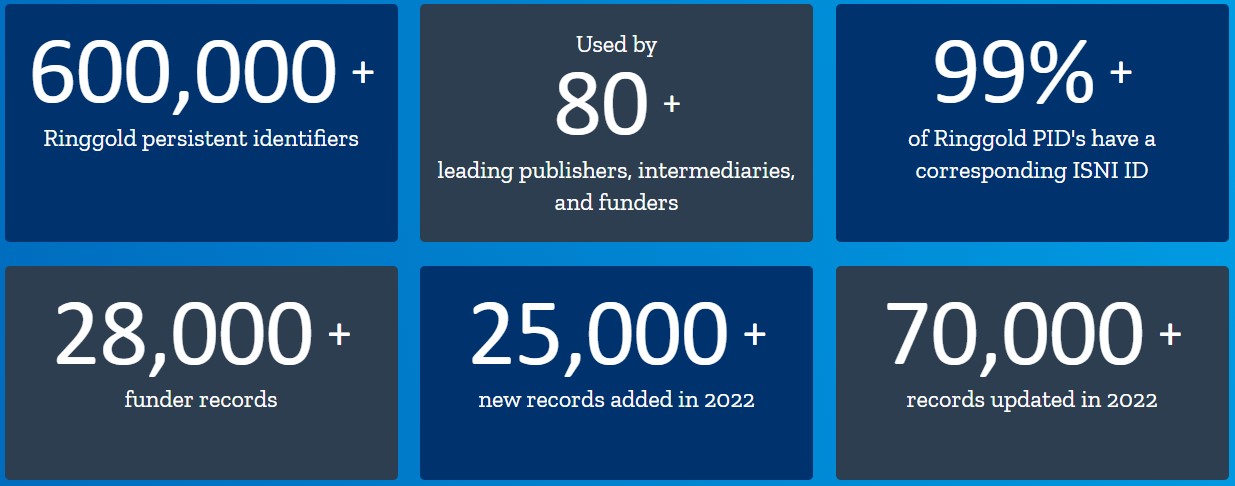It’s no secret that data and data quality have become crucial in the day-to-day operations of many organizations. I think we are all aware of the myriad of challenges arising from data management in adopting new publishing models. Increasingly, people see that Persistent Identifiers (PIDs) are key for any publisher making the shift to OA as they allow for the unique identification and disambiguation of key data points in the OA submission and publication process. However, not all persistent identifiers are created equal nor are they intended for all uses.
In my roles as both Treasurer of the ISO registration authority for the International Standard Name Identifier (ISNI) and Senior Director, Publishing Industry Data at CCC, I have the opportunity to observe and participate in the worlds of identifiers as well as workflow solutions that offer a deeper level of understanding of organizational data. ISNI is the ISO-certified global standard which assigns millions of PIDs to public identities in all creative fields from music, film, and TV to organizations, publishers, and scholarly research. ISNI IDs are an important part of helping to make sure that individual and organizational identities are correctly attributed in, for example, royalty payments, transactions, catalogues, and discovery services. ISNI IDs are freely available, allowing them to be easily shared. Their use helps to create interoperability among the services that utilize them. ISNI IDs are also used regularly as a bridge identifier to help connect organizational data across different datasets.
The Ringgold Identify Database was originally created in 2003 in response to an issue raised by a university press looking for a way to identify institutional subscribers unambiguously. As part of the 2022 acquisition of Ringgold, the Ringgold Identify Database is now offered by CCC. Over time, Ringgold greatly expanded its services to meet the PID needs of a range of stakeholders in the scholarly ecosystem, including publishers, funders, researchers and other parties. Ringgold has continued to grow with the scholarly publishing industry, striving to meet the needs of the organizations we work with as they continue the shift to Open Access publishing.
As an ISNI registration agency, Ringgold IDs are complementary to those offered by ISNI. For organizations that use a grant management system, current research information system (CRIS), bibliographic database, or any other dataset that relies on ISNI for affiliations or other organizational information, Ringgold data can be automatically imported into that system by matching to the ISNI IDs. Over 99% of the 600,000+ Ringgold IDs in the dataset have a corresponding ISNI ID to help stakeholders make critical connections to other internal and external datasets, making it easier for organizations that rely on quality data to adapt workflows in a continually changing open scholarly publishing ecosystem.
 The Ringgold dataset is continuously curated by a full-time team of experts to provide highly granular, enriched data. The Ringgold Identify Database is applied to organizations, not individuals or creative works, and provides additional layers of information such as hierarchies, structured metadata, and more. For example, this granular data is critical to publishers as they try to understand funding and discount eligibility under transformative and open access institutional and consortia agreements, assist in compliance with institutional and funder mandates (such as Plan S or OSTP), and identify conflicts of interest in peer review.
The Ringgold dataset is continuously curated by a full-time team of experts to provide highly granular, enriched data. The Ringgold Identify Database is applied to organizations, not individuals or creative works, and provides additional layers of information such as hierarchies, structured metadata, and more. For example, this granular data is critical to publishers as they try to understand funding and discount eligibility under transformative and open access institutional and consortia agreements, assist in compliance with institutional and funder mandates (such as Plan S or OSTP), and identify conflicts of interest in peer review.
Both independently as Ringgold and now part of CCC, my team has worked with organizations who started out using identifiers other than Ringgold, only to discover that unforeseen limitations of those identifiers sometimes resulted in extra manual work and additional costs. With a dedicated curation team, customer support, and continuous updates, Ringgold became the solution of choice for these publishers, enabling them to meet the requirements of their stakeholders.
Learn more about Ringgold Solutions here and learn more about ISNI here.


